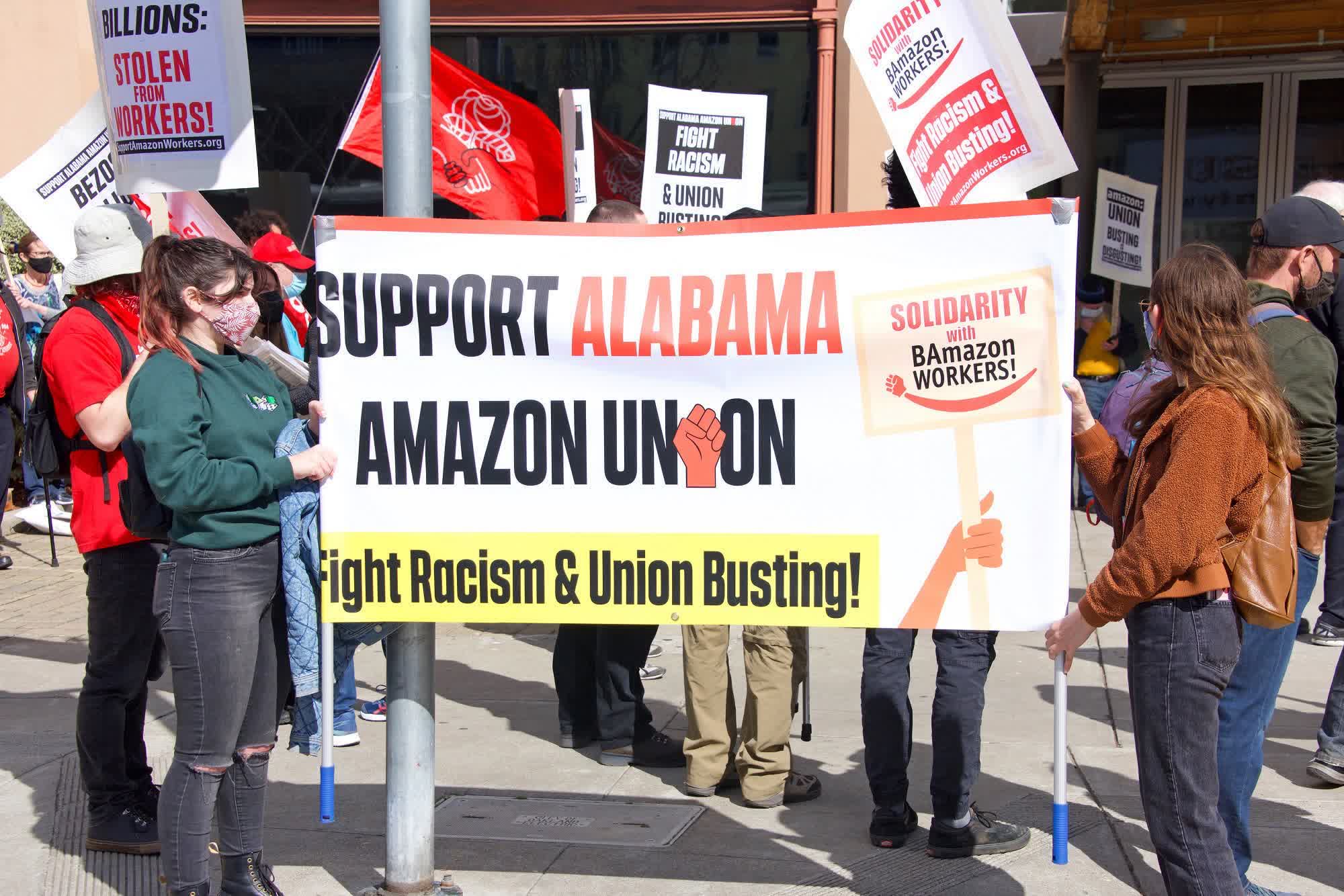In brief: A surge of fake Twitter accounts claiming to be Amazon employees has flooded the microblogging site with anti-union sentiment and praise for the company's working conditions. The deluge of tweets arrives just as votes are being tallied at the company's Bessemer, Alabama, warehouse that will decide if its workers unionize.

Twitter has suspended many of these accounts, most of which were created in the last few days. They use handles that begin with "AmazonFC," followed by a first name and a warehouse designation.
"What bothers me most about unions is there's no ability to opt out of dues," @AmazonFCDarla tweeted, even though Alabama state law prohibits this. "Amazon takes great care of me," she added.
The BBC highlights another account that wrote, "Unions are good for some companies, but I don't want to have to shell out hundreds a month just for lawyers!" It later changed its profile picture after being exposed as a fake.
Amazon didn’t even really try with this one lol pic.twitter.com/Q9dyTzKqns
— Tim Sullivan 🐋 (@timjsully) March 29, 2021
The format of these fake accounts' handles is also used by Amazon's ambassadors. In 2018, the company started the ambassador program, which involves employees sharing positive experiences of working at the firm on social media—you're unlikely to see them mention urinating in bottles.
Without revealing specific numbers, Amazon confirmed "many" of the accounts don't belong to its employees. "Many of these are not Amazon FC Ambassadors—it appears they are fake accounts that violate Twitter's terms. We've asked Twitter to investigate and take appropriate action," said an Amazon spokesperson.
This is so great. Remember those extremely real Amazon workers who were tweeting nice things about working there? Well Leo is now Ciera, Michelle is now Sarah, Rick is now James, etc. pic.twitter.com/q5LgITjMQ4
— Karen Weise (@KYWeise) January 30, 2019
Twitter told the BBC that Amazon ambassadors are subject to the site's rules on spam and platform manipulation. It added that any non-parody accounts impersonating or falsely claiming to be affiliated with a company can be temporarily suspended or removed; parody accounts must include disclaimers in their bios.
Amazon found itself in the middle of another PR disaster last week after claiming its workers don't urinate in bottles and that it was a "progressive workplace."
Image credit: Sheila Fitzgerald
https://www.techspot.com/news/89123-twitter-swamped-fake-amazon-workers-defending-company.html